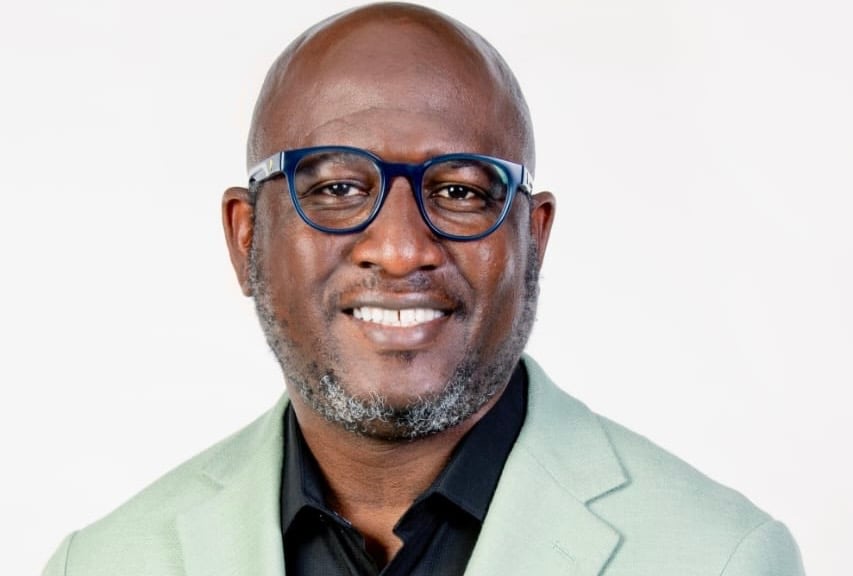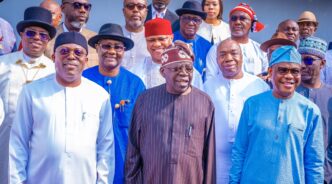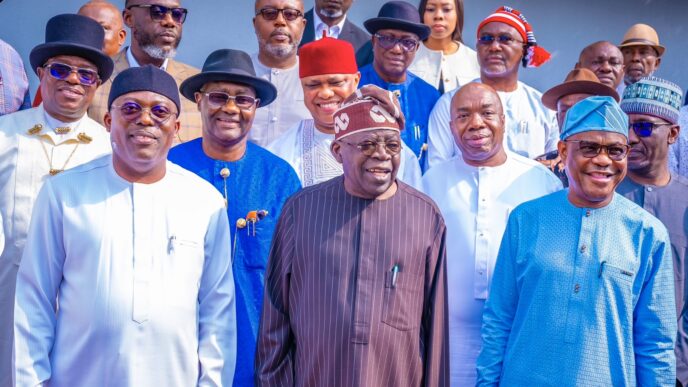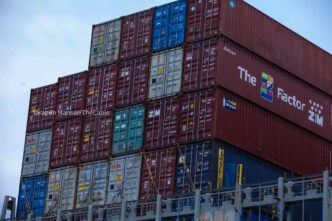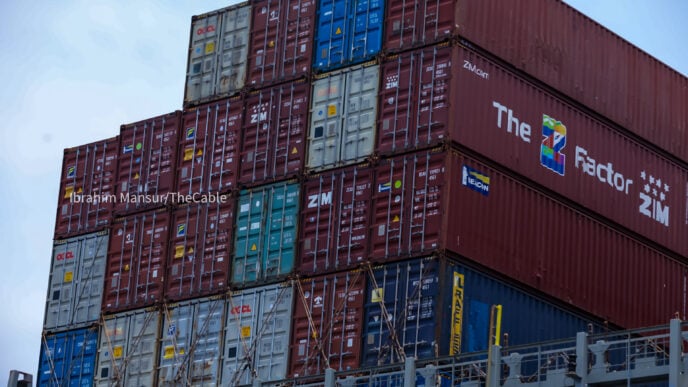In the bustling landscape of America’s immigrant communities, stories of resilience and ingenuity abound. Among the newest voices shaping that narrative is Ayomide Ibrahim, the Nigerian-born financial strategist and founder of FinServe Pro, a Maryland-based firm dedicated to helping Africans in the United States navigate the complexities of taxation, accounting, and financial literacy.
For Ibrahim, numbers have never been just about arithmetic. They represent lives, choices, and aspirations. “I don’t just see numbers when people come in,” he explained in an interview. “I see dreams, I see small businesses trying to grow, families trying to build stability, people trying to make sense of a system that wasn’t built with them in mind.”
That perspective sets him apart in an industry often criticised for being technical and detached. His firm does not just prepare tax returns or produce financial statements. It seeks to educate, empower, and demystify the American financial system for a demographic that often struggles with access and trust.
Ibrahim’s story is intertwined with the broader experience of Africans building new lives in the United States. Many arrive with professional degrees but discover that American systems are layered with obstacles. From the intricacies of IRS rules to credit histories and small business compliance, the financial terrain can feel hostile to newcomers.
Advertisement
“When you are an immigrant, you carry two weights,” Ibrahim often says. “One is the desire to succeed for yourself and your family. The other is the responsibility to support your community back home.” This dual responsibility drives his philosophy at FinServe Pro.
It is why he insists that credentials are not enough. “Credentials are important, but what matters is impact,” he said. “Can the community trust you? Can you explain the complex in a way that feels simple? Can you empower people to take control of their financial lives?”
Founded in 2020, FinServe Pro emerged at a time when the COVID-19 pandemic had pushed many small businesses and families into financial uncertainty. For immigrant households, especially Africans in states like Maryland, Virginia, and New York, the challenges were compounded by cultural and linguistic gaps.
Advertisement
Ibrahim recalls those early days vividly. “Clients would come to us with IRS letters they could not read, loans they did not fully understand, or credit histories damaged by misinformation,” he said. “We realised quickly that our work was not just about filling forms. It was about restoring confidence.”
The company’s approach is to blend compliance with education. As Ibrahim explained in an interview with the Guardian Nigeria, “All of our services have been developed in a way to educate our clients, individual or business, in a way to make better financial decisions.” That educational mission has become FinServe Pro’s hallmark.
From workshops on financial literacy to one-on-one advisory sessions, Ibrahim has sought to make finance accessible. He often references a statement by Maryland Governor Wes Moore: “Maryland is asset rich but strategy poor. This we have seen across all levels and have been collaborating with individuals, companies and government in providing solutions. That is something we are passionate about.”
Within a few years, Ibrahim’s impact has not gone unnoticed. FinServe Pro has been recognised at community events across the United States, and Ibrahim himself has been honored with awards that celebrate leadership and service.
At the African Community Service Awards, he delivered a stirring message about the importance of building economic solidarity within the diaspora. “We have to go beyond that,” he told the audience. “We need an African economy within the U.S. economy. We need to make sure that our money revolves within our economy. We need to grow. We need to be less dependable on other economies.”
Advertisement
He continued with a challenge that resonated widely: “We should go beyond just partying, but forming lives, a formidable economy. But I’m sure that when I want to invest, before I think about any other person, I want to think about this community. That is who we should be.”
These statements echo his belief that financial stability is not only an individual pursuit but also a collective project. By pooling resources, supporting African-owned businesses, and reinvesting in the community, Ibrahim believes the diaspora can become a formidable economic force in America.
Beyond the formal services of FinServe Pro, Ibrahim is active in community education. He and his team volunteer during tax season, offering free consultations to low-income households and immigrant families who cannot afford professional services.
On social media, he shares tips on credit management, small business planning, and savings strategies. His posts, often in both English and Nigerian Pidgin, reflect his intent to reach people where they are. For many followers, these short clips are the first accessible financial advice they have ever received.
Advertisement
Ibrahim also collaborates with churches, cultural associations, and youth organisations, ensuring that financial literacy is not restricted to boardrooms but enters the everyday conversations of African families in America.
Success, however, has not come without hurdles. Ibrahim has had to confront skepticism from those who doubt the intentions of financial professionals. Trust is fragile, particularly in immigrant communities that have been exploited before.
Advertisement
He acknowledges this reality. “When people come to you, they bring both hope and suspicion. They want help, but they are afraid of being cheated,” he said. “That is why we focus on transparency. We explain every step. We make sure they understand why and how their money is moving.”
Another challenge has been bridging the gap between American financial systems and African ways of thinking about money. In many African households, financial decisions are collective and informal. In America, the systems are highly individualised and formalised. Ibrahim sees his role as translating between these worlds.
Advertisement
Although FinServe Pro is headquartered in Maryland, Ibrahim’s ambitions extend far beyond one state. He envisions a network of financial literacy hubs across the United States, each serving as both a professional office and a community center.
He also sees opportunities to build financial bridges back to Africa. With the growth of remittance flows, diaspora investments, and cross-border entrepreneurship, Ibrahim believes firms like his can help Africans abroad channel resources effectively into their home countries.
Advertisement
“This is bigger than taxes,” he said. “It is about building an economic identity for Africans in America. If we do it right, we can change the story of our generation.”
In the years to come, FinServe Pro plans to expand its services, integrating digital platforms that make tax filing and financial education accessible online. Ibrahim is also exploring partnerships with educational institutions to develop training programs for young Africans interested in careers in finance.
For him, the mission remains clear. “This work is not about me,” he often says. “It is about the child whose parents now understand how to save for college. It is about the small business owner who can finally breathe because their books are in order. It is about the community that begins to believe in itself.”
In a time when America debates the place of immigrants, stories like Ibrahim’s remind us of the transformative contributions they bring. His vision is not limited to profit margins but anchored in the belief that financial literacy and empowerment are human rights.
As FinServe Pro grows, so too does the story of a rising star in America’s African community, a man determined to turn numbers into narratives of hope, resilience, and collective progress.
Ayomide Ibrahim is part of a generation of young African leaders who are reshaping what it means to succeed in America. He is not just chasing personal wealth but crafting a model of collective advancement.
His rise underscores the resilience of African immigrants, who despite barriers continue to innovate and create solutions. From his early days helping clients decode IRS letters to his current position as an award-winning CEO, Ibrahim has demonstrated that finance can be a tool for empowerment rather than exclusion.
The African community in America, diverse and growing, faces enormous challenges in housing, employment, and generational wealth. Leaders like Ibrahim are not offering quick fixes, but they are laying the foundations for long-term change.
Views expressed by contributors are strictly personal and not of TheCable.

